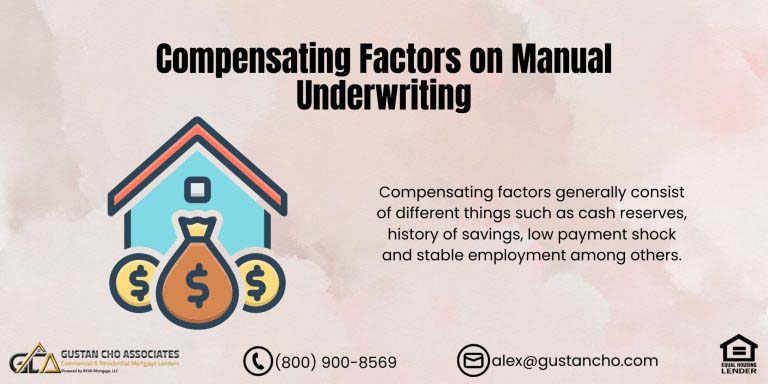This guide covers things to avoid when repairing your credit for a mortgage approval. There are things to avoid when repairing your credit for a mortgage approval. Mortgage applicants need to realize that low credit scores mean higher mortgage interest rate. Lenders view lower credit score borrowers as higher risk. With higher risk, comes higher rewards. Higher rewards for lenders means higher mortgage rates. In this article, we will discuss and cover on things to avoid when repairing your credit for a mortgage approval.
Reasons For Credit Score Decrease
There are obvious reasons why credit scores drop. Filing bankruptcy can plummet credit scores by 100 points or more. A foreclosure can drop credit scores by an equal amount. Late payments on a car loan, credit card, or installment loan can cost you 50 points or more on credit score. Too many inquiries at the same time will also have a negative impact on credit scores. There are things to avoid when repairing your credit that most people do not realize. They are little tasks that most people do not realize that actually can hurt credit scores.
Things To Avoid Things To Avoid When Repairing Your Credit When Repairing Your Credit
One of the things to avoid when repairing your credit is to have zero balance on credit cards every month. Paying credit card off every month and having a zero balance will not help maximize FICO credit score. It will not drop score but it will not help maximize credit scores. The credit reporting agencies have formulas in calculating credit scores. If you have a zero credit balance on credit card, that does not factor in to credit spending ratio formula.
Click here to get a loan with low credit score
Credit Utilization Ratio
The credit spending ratio is the percentage of credit card limit that is being used and counts 30% of your overall credit score. The credit spending ratio formula is calculated as follows:
- Find your credit card limit and your credit card balance from a recent credit card billing statement
- Then divide your credit card balance by your credit card limit
- You then multiply the number that you got from B by 100
- The lower the number, the better it is
Leaving Small Balance on Credit Card Balance To Maximize Credit Scores
By having a small number, the better. Leaving a very small balance like $10 dollars will help you have a higher credit score. Things to avoid when repairing your credit is by not having a zero balance. A zero balance will not help improve your credit and most people do not realize this. If you have a zero divided by whatever credit card balance is, you get a zero.
High Credit Card Balances Will Hurt Credit Scores
Other things to avoid when repairing your credit is having high credit card balances. As discussed in the previous paragraph, the amount you owe on credit card and the available credit limit will determine 25% of total credit score. If you max out credit card balance limit, credit spending ratio will have a higher number which will drop your credit scores. Remember that the credit spending ratio needs to be a low number but not zero.
Low Credit Spending Ratio
Creditors and lenders consider consumers having a low credit spending ratio, normally 10% or less, to be a low credit risk borrower and the credit scores will reflect that.
High Credit Limits Will Trigger Higher Scores
Having a high credit card limit is always good and will improve your score. Ask the creditor to increase credit card limit periodically. Normally, if you pay all of the bills on time, ask the creditor to increase credit limit once a year.
Closing Out Revolving Accounts Will Hurt Credit
Other things to avoid when repairing your credit is to close a credit card account. Never close a credit card account. Having open credit card accounts is another factor that derives overall credit scores. 15% of overall credit score is derived by the length of credit history. By closing an old credit card account will shorten credit history and hurt credit scores. The more credit card accounts consumers have with low balances, the higher the credit score will be.
Avoid Hard Credit Inquiries
Other things to avoid when repairing your credit is limit yourself in applying for new credit. Whenever consumers apply for a credit card, automobile loan, or other installment loans, the creditor will pull credit and applicants will have a credit inquiry on their credit report. Each one of these credit checks is also known as a hard pull credit check. These credit inquiries are not favorable to your credit scores. Too many credit inquiries will hurt credit scores and drop credit score. This does not mean not to apply for new credit, but do not apply for ten credit cards all at once. This massive credit applications at the same time will cause major concern to creditors. They will think consumers are desperate and ultimately their credit request will get denied.
Speak With Our Loan Officer for Mortgage Loans
Credit Tradelines Recommended
The ideal number of credit tradelines consumers should have is at least three. Consumers should avoid hard credit inquiries. Maximum hard credit inquiries should no more than 3 credit inquiries in any six month period. Mortgage companies do hard pulls. Credit will be pulled throughout the mortgage process but normally are soft pull credit checks. The longer the consumer credit history, the stronger the credit profile. Start establishing credit as soon as possible. Any questions in rebuilding credit or need to apply for a mortgage loan please contact us at Gustan Cho Associates at 800-900-8569 or text us for faster response. Our email address is gcho@gustancho.com.
Update on Credit Disputes cnd Things To Avoid When Repairing Your Credit
Things to avoid when repairing your credit during mortgage process is disputing derogatory items on credit reports. Borrowers who are undergoing credit repair in repairing credit cannot have disputes on non-medical collection items with credit balances during the mortgage loan process. Any aggregate credit disputes of $1,000 greater on non-medical collections will halt the mortgage process until the credit disputes are retracted. Borrowers cannot have credit disputes on charged-off accounts to qualify for FHA loans. Medical collection accounts are exempt from credit disputes. Borrowers of FHA Loans do not have to pay outstanding collections and charge off accounts. Non-Medical Collections under $1,000 in aggregate outstanding balance is exempt. This is both a HUD and Fannie Mae mortgage guideline for 2024.
Apply for loan today through Gustancho Associates, Click here









